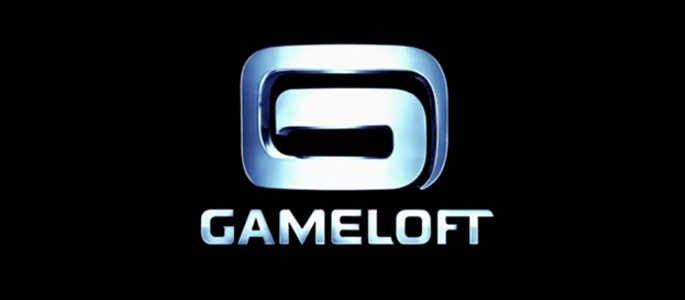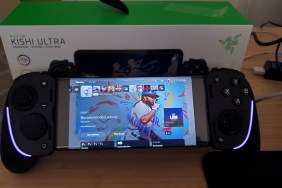After talking to Gameloft’s Digital Marketing and Community Manager, Callum Rowley on the day of the Xperia PLAY’s European launch, we caught up with the publisher’s Managing Director, Julian Stocker to find out not only how successful the company has been with the platform, but about the importance of developing for “the next big thing”, and why traditional publishers have been so slow to adapt to digital distribution.
 How would you classify Gameloft? Are they still a mobile games publisher?
How would you classify Gameloft? Are they still a mobile games publisher?
We call ourselves a publisher of digital and social, we’re 10 years old now and we did start life as a mobile games company, I think we’ve changed quite a bit over the past few years, covering all sorts of platforms and bringing out games on wherever there is digital distribution. We’ve pretty much been the first to bring out high quality games so, for example: iPhone, Windows Phone 7, but also we’ve been doing games in the past on WiiWare and DSiWare. So yeah, we’ve moved quite a bit from just mobiles, but more recently, we’ve also been looking at tablets, set-top boxes, connected TVs and even 3D phones, like the [LG] Optimus 3D.
So now we have a company of, I think, over 4,000 developers all over the world. We sell in over a 100 countries, and last year’s revenue was €141 million, which, year-on-year, was a 16% growth. So, we partner with lots of leading brands – we do branded games, for example UNO, Spider-Man, Avatar, Ferrari, Sonic – but we also do our own franchises, those are: Real Football, Asphalt, Modern Combat, Nova etc. We also have quite a tight relationship with Ubisoft, with the CEO of Gameloft being related to the… well he’s a Guillemot, one of the Guillemot brothers, so he actually co-founded Ubisoft as well.
But why do you think that a lot of the bigger, older publishers have been quite slow to get into the same platforms as Gameloft? They often outsource to Gameloft even…
I think it’s the way we are set up. Initially, we were a mobile games company, and our strategy, and the strategy that worked for us was to develop lots of games – lots of high quality games – so, for example on the old phones, we would be releasing sometimes 2 or 3 games a month, and we’re still doing it pretty much now. So we’re set up in a way that we are use to doing lots and lots and lots of products constantly, whereas I think the traditional guys focus on a lot less games, and obviously they take a bit longer.
I think with these new platforms, they are more suited to our strategy, so, you know you’ve seem some of the other publishers – for example Ubisoft, they haven’t really brought out a huge amount of games, if we’re looking at things like… well I think they haven’t got any on Android, but on iPhone, they’ve only had a couple of games. And for us, the way it works is to be bringing out a number of games consistently, at a high quality. And that’s how we’re set up, we’re able to do that.
So, do you think its always important to plan to get into the “next big thing”, and to jump onto emerging markets?
We don’t automatically support a new platform, but we’ll obviously take a view on how successful we think it will be, and if we do think its going to be successful, then we’ve got the resources and the, well the money basically, to put into the platform. You know, we saw the iPhone coming quite a long way off and did exactly that, and we hit the iPhone with a lot of games quite quickly, and we’ve got now over a 100 games – I think we had something like 20 odd in the first 6 months. That’s really how we intend to approach these things, and its similar with the Xperia PLAY, I think we’ve got more games than anyone on the PLAY, and its just a sign that we believe in it, and I think that we’re a good partner for Sony Ericsson because having Gameloft on their side means that there will be a lot of good content there.
You said you had around a 100 titles on iPhone, do you think that a lot of those are going to be eventually coming to the Xperia PLAY, or with real-button support?
I think some of those titles are getting on a bit, there wouldn’t be much point bringing out Asphalt 5 when we’re already on Asphalt 6, so I think we’ll bring out the next iterations of the strongest games, I expect. A lot of it from now is going to depend on the actual sales, but from what we’ve seen already over this weekend – the sales are very good.
In the very first weekend its already a top device for us in terms of number of games being sold, which is pretty amazing actually, because that means it must have sold in a reasonable number already over the weekend.
But it did have a troubled launch [shipping delays, O2 not releasing the phone due to bugs], do you think that it might have hampered its success overall, or is it just a momentary problem?
Looking at the sales we’ve seen, I don’t think there’s any problem; it has actually overtaken pretty much all the other Android devices already.
Do you think it’ll stay up there, or is it just a launch bump?
Yeah, we always get a bump when a new phone comes out and people want to explore the phone and find out what content is available on the phone. Generally there’s a honeymoon period for content purchasing, but it would normally last a few months, not a few days, so this is just the beginning of it, and it looks pretty good.
Buttons are, of course, the whole new feature for the phone – do you think the sales show that gamers and consumers want buttons on phones, and do you think that should be brought to most gaming phones now, or is that just a niche market?
I think its something that a lot of, maybe… gamers who may have been dismissive before of mobile games, it might be the thing that makes them try it out. I think that the touchscreen gaming revolution that we’ve seen has obviously brought a lot of people to games that may not have bought them before, and traditional, hardcore console gamers – I think – really are used to those sorts of buttons, they understand what PlayStation is and what it means, and I think they’ll be much more comfortable with this device. We’ll see how it goes – I think it could attract both audiences, so its in a good position.
Now looking back at Gameloft sales on the platform – do you think you made the right decision bundling free games onto it, or do you think you would have been better off just selling them individually?
I think its good for the customer to have some games to play without paying, because they are going to feel that, when they pick up that phone there’s good games on it, and its got more good games coming. It’s essential to have something on there, it wouldn’t be much good to pick up a gaming phone and not be able to play anything on it.
But do you think its good for Gameloft, or just the customers?
[Pauses] It’s fine for Gameloft… we’re happy with it… definitely. It’s part of an agreement with Sony Ericsson, so, you know, we’ve supported the device with a whole bunch of our games, and, as I mentioned already, we’ve seen some good sales, so I think everyone’s happy.
Do you see the NGP as competition to the Xperia PLAY?
I think what you’re looking at with the PLAY is a very high quality phone that you can obviously make calls on, do messaging and download the kind of apps that everyone loves these days, and play games.
So I’m not sure, I think the NGP is gonna be more towards the traditional gamers, its gonna be more about immersive games as well, rather than recreational games, which – for the Xperia PLAY – you’re gonna have the recreational and immersive.
Looking at mobile gaming as a whole, it’s starting to overtake normal, traditional gaming, like console gaming. Do you think in the future everything is going to go mobile, or that consoles with still remain the biggest platform?
I think that the abilities of these mobile devices is increasing at a very rapid rate. We’ve already seen the Xperia PLAY, which has got some very high quality games on it and, from what we’re seeing, there’s dual-core devices coming out, like the LG Optimus and the Samsung Galaxy S2, and further down the line we’re going to have quad-core mobile phones, so I think the gap between the quality is going to decrease. But there’s always going to be a home for consoles I would have thought. But who knows when you’ve got things like set-top boxes now with HD games on and connected TVs? Maybe… These are going to impact more than mobiles, I think its going to be up to the consumer what they’d like, what’s the most convenient and what gives the best experience.
When you’re talking about dual and quad-core phones, do you think that the PLAY is powerful enough? It doesn’t exactly push any boundaries – it’s not bad, just kinda standard.
The games that we’ve done on it are as good as any of the other versions that we’ve done on other phones, you wouldn’t see any difference, so the power it has is perfectly OK from our perspective.
But, looking to the future… if you look at console gamers and PSP gamers, they expect a 5-10 year lifecycle on the one platform…
I think, you know, with any device, as developers get under-the-hood and they’ve made some games, they obviously get better at developing them, so we work out ways of still getting games to be even better with the same kinda chips underneath. So there’s going to be games continuously for this device, so I don’t think it’s going to be an issue.
So Gameloft has long term support plans for the PLAY then?
At the moment, yes, yes we do. We’ve go something like, I think its 2 new games a month now for the next few months at least. And judging by the sales we’ve seen so far it could increase.








